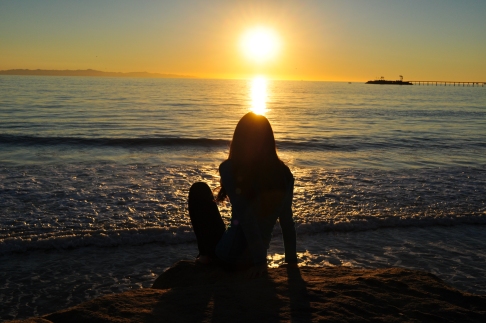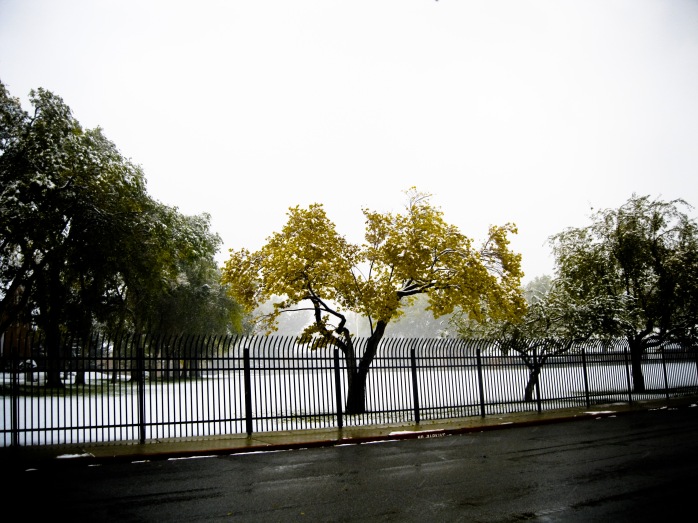To have guns or not to have guns? That seems to be the burning question amongst the media’s debate on guns; but why not take a stance in the middle? The 2nd amendment states the ownership of guns as a right of the people, so it should not be taken away. Guns can be recreational, such as hunting or going to shooting ranges, and a form of self-defense. Despite that, guns are still dangerous weapons that if falling into the wrong hands, can cause tragedies. Therefore, because of this dilemma, there should be regulations and processes that assure guns only fall into responsible hands.
Certain gun restrictions would only backfire. History does show how the restriction of something that people do want can lead to actually more of that action. That example would be when prohibition was enacted which only caused bootleggers and illegal speak easies to sprout up which fed a society that consumed just as more or even alcohol than without prohibition. When the gun control controversy consumed the media, a binge of people began buying guns simply because of the fear of having that right stripped.
Taking away the right to own guns could end up leaving society more vulnerable to gun violence. Gun-free zones are one example. They create a well-known place for murderers to come and enact their crazy actions on vulnerable victims. In fact, “every public shooting since 1950 in the U.S. in which more than three people have been killed has taken place where citizens are not allowed to carry guns” (Bennett, “The case for gun rights is stronger than you think”). More people are able to be shot if the shooter is able to shoot without opposition, of which a gun is the best opposition to a gun. Universities are almost universally gun-free, and the advisement towards their students to defend themselves if a gunman shows up exemplifies the absurdity of trying to defend oneself from a gun without one. West Virginia University advises its students to defend by acting “with physical aggression and throw items at the active shooter” such as “student desks, keys, shoes, belts, books, cell phones, iPods, book bags, laptops, pens, pencils, etc…”(Bennett). Is that really the best defense? Will that do much at all?
Some arguments by anti-gun protestors claim ridding of guns or making too stringent of gun laws is best for the safety of citizens. The statistics say something quite different. There are 31 states that allow their citizens to have concealed weapons on their person and these states have about a “24% lower violent crime rate, a 19% lower murder rate, and a 39% lower robbery rate than states that forbid concealed weapons” (Lampo, “Gun Control: Myths and Realities”). It seems that where guns are allowed, citizens are safer. The lowest violent crime rates are not found in states where guns are forbidden to be carried, but actually in the nine states with right-to-carry laws (Lampo). Taking away guns may have no change to society truly, or may even harm it. Gun are not always used to kill, but sometimes for self-defense. They are used in such matter “more than 2 million times a year, 3 to 5 times the estimated number of violent crimes committed with guns” (Lampo). Killings are not always because guns are available. In Switzerland and Israel, where their citizens own firearms at about the same rate as in the U.S., homicide rates are still low (Lampo). “In a nation of nearly 300 million guns”, taking away guns is not the answer; in fact, it may be keeping us safer and it is our right (Goldberg, “The Case for More Guns (and More Gun Control)”).
The 2nd amendment gives Americans the right to own firearms. Some might argue the amendment refers to militia, not everyday citizens, owning firearms, but the framers said the militia “was composed of we the people, ordinary citizens” (Winkler, “The Second Amendment is all for Gun Control”). Yet there is also a sense of responsibility and regulation to this right in the amendment. UCLA constitutional law professor, Andrew Winkler, states how the framers intended firearm owning citizens to be “‘well regulated’-trained, disciplined, and properly instructed by the government to use arms effectively, safely, and properly”. Even U.S. Supreme Court Judge Scalia does not oppose regulation of guns, despite his well-known strong conservative views. He states after a decision allowing gun owners to have firearms in their homes, “Nothing in our opinion should be taken to cast doubt on…laws imposing conditions and qualifications on the commercial sale of arms” (Winkler).
Guns can be regulated, but not so much as to take away the right to own a gun because the responsible ownership of a gun could actually protect from gun violence. An example of this could be from 2007 in New Life Church in Colorado Springs. A shooter entered and shot two girls but was wounded and kept from killing anyone else by former police officer, Jeanne Assam, who was able to pull her own firearm on the gunman (Bennett). Another story is from Pearl Junior High in Mississippi where a “high school student, Luke Woodham, stabbed his mother to death and then drove”…to the school and “shot two people”. Upon his escape from the school to continue his rampage, the assistant principal, Joel Myrick, was able to cause Woodham to surrender after running to his truck to grab his pistol and pointing it at Woodham (Bennett). Aside from examples, statistics also prove the good presence of guns. “The number of concealed-carry permits is the highest it’s ever been…and the homicide rate is the lowest it’s been in four decades” (Goldberg). In fact, crime has fallen 10% in the year after 40 states issued “permits to competent, law-abiding adults to carry concealed handguns” (Stossel, “Why Guns are Good”).
It goes to show that the ridding of guns is certainly not the answer, but guns should only be in the hands of the responsible. Some regulations could be making certain guns, such as excessive machine guns, illegal for ordinary citizens, because truly, that is excessive weaponry for recreation or self-defense. Guns should also be concealed when carried, as many states already have issued, for it’s unreasonable to flaunt such weapons. Background checks and requiring permits should definitely be part of the process to acquire a gun to avoid felons and the mentally ill from acquiring a firearm. This also is because holding a permit implies a responsible gun owner. Goldberg quotes Winkler, “That’s not to say that permit holders don’t commit crimes, but they do so at a lower rate than the general population. People who seek to obtain permits are likely to be people who respect the law”. All in all, it is an American’s right to own a firearm, but they are dangerous, and responsibility should be a requirement upon the ownership of one.
References
Bennett, William J. “The case for gun rights is stronger than you think.” CNN. 19 Dec. 2012. 18 Jun. 2014. <http://www.cnn.com/2012/12/19/opinion/bennett-gun-rights/>.
Goldberg, Jeffrey “The Case for More Guns (and More Gun Control).” The Atlantic 28 Nov. 2012. 21 Jun. <http://www.theatlantic.com/magazine/archive/2012/12/the-case-for-more-guns-and-more-gun-control/309161/>.
Lampo, David . “Gun Control: Myths and Realities.” Cato Institute. 13 May. 2000. 22 Jun. 2014. <http://www.cato.org/publications/commentary/gun-control-myths-realities>.
Stossel, John . “Why Guns are Good.” Fox News. 23 Jun. 2010. 17 Jun. 2014. <http://www.foxnews.com/opinion/2010/06/23/john-stossel-guns-good-save-lives-criminals-lubys-cafeteria-texas-handgun/>.
Winkler, Adam . “The Second Amendment is all for Gun Control.” The Daily Beast. 17 Feb. 2013. 20 Jun. 2014. <http://www.thedailybeast.com/articles/2013/02/17/the-second-amendment-is-all-for-gun-control.html>.




